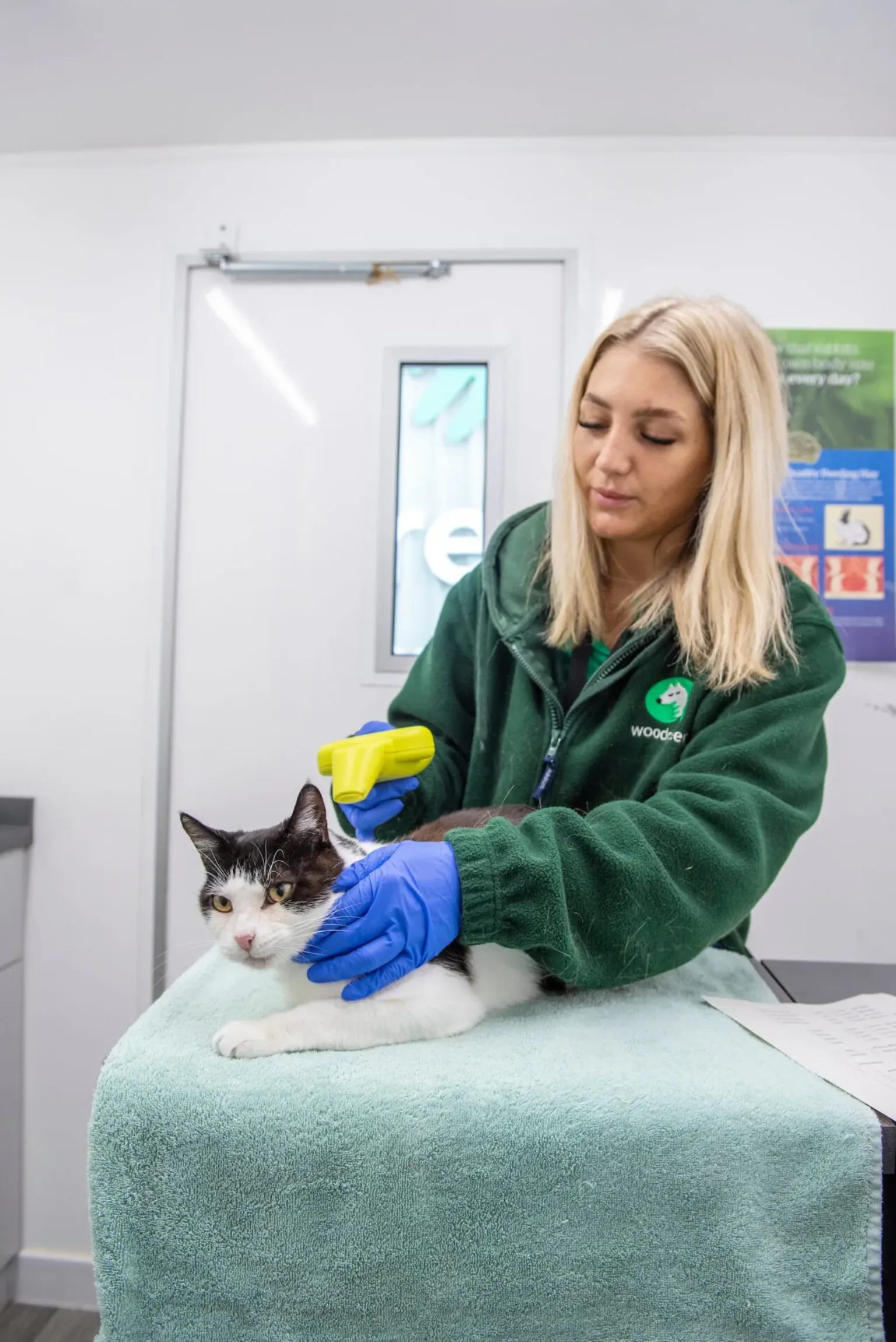Fireworks: how to keep your pets safe
Find out how to recognise fear in your pets and keep them safe and happy.

More than half of the stray cats taken in by Woodgreen Pets Charity over the past year either weren’t microchipped or had incorrect details.
As National Microchipping Month gets underway (1 to 28 June), and with cat microchipping becoming compulsory by law on 10 June, the charity is urging pet owners across Cambridgeshire to take action so they can be reunited with their beloved animals should the worst happen and they go missing.
Over the past 12 months, Cambridgeshire-based Woodgreen Pets Charity has had 170 stray cats come through its doors in Godmanchester. Of these, 79% had either no microchip or the details were out of date, meaning staff are unable to reunite many of the stray cats they see. And, despite it being a legal requirement since 2016 for all UK dogs to be chipped, more than 40% of the 370 stray dogs at the charity over the past year weren’t chipped or had incorrect details attached. Of the 551 stray cats and dogs taken in by the charity over the last 12 months, only 135 were able to be returned to their owners.
Dr Fiona Cooke, Head of Specialist Services at Woodgreen, warned people it was just as vital to update microchip details as it was to get pets microchipped.
She said: “A microchip is the best way to ensure you get your pet back if they go missing. It’s heartbreaking knowing there are so many people searching for missing pets, when in most cases they could be easily reunited had that animal had an up-to-date microchip. Almost all of the pets we reunite with their owners is down to them having a microchip that’s up to date – if not, it’s much trickier to track people down, unless they get in touch with us.
“We’re seeing more stray pets with microchip details that are out of date, so we can’t stress enough the importance of updating it if you’re moving house, have changed your phone number, or are taking your pet on holiday this summer, for example.”
Fiona’s top tips for microchipping your pet: